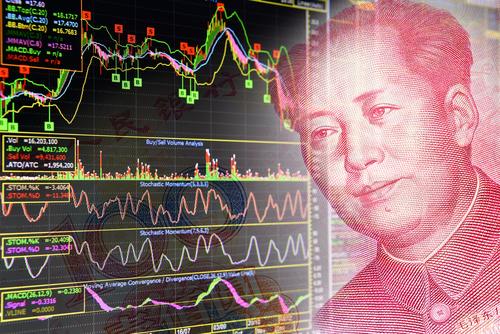
As the UK decides to leave the Eurpean Union, markets plummet in Asia. This could be especially worrying for China after the country only recently, and as it looks now only for a short time, defeated great concerns about its rising debt levels.
China’s rising debt
Chinese rising debt first became a major concern in 2014 when debt levels reached US$ 28 trillion, nearly 282% of its’ GDP. Only Greece, Portugal, Ireland and Singapore saw greater debt to GDP ratios. China had fuelled its impressive economic rise since the 1990s through foreign investment and exports, but its’ economy had started to slow after a 2007 peak at 14 trillion GDP and fell below US$ 8 trillion in 2014 which caused concern over China’s ability to service its’ debt.
Nether the less China has over the past two year managed to defend its’ market position and the first quarter of 2016 saw the highest rate of growth since the end of 2014. GDP has risen above US$ 8 trillion again, leading many to believe that the Chinese economy may be on a way to recovery.
However, new gained strength in the economy was once again funded through borrowing, with bad loans being serviced by new loans and the Chinese government investing heavily in construction and investment through a further expansion of credit. Debt levels are still at 240% of GDP and public debt has further risen from 58% in 2014 to 65% in 2016. These figures may even be an underestimate of real levels as local governments, necessitated to borrow due to low tax incomes, often write of borrowing as corporate debt due to legal barriers to local government borrowing.
Asian markets plummet
China may have hoped they avoided painful structural adjustments to decrease debt levels for a prolonged period of time, but last night’s Brexit results may destroy any hope that he country has for now escaped the critical stage. Asian markets have started to plummet with Tokyo, Hong Kong and Sydney loosing 7.2 percent, 4.7 percent and 3.18 percent respectively.
The Chinese and communist party controlled news wire Xinhua had previously estimated that a Brexit vote would likely put downward pressure on global markets and could cause Chinese markets to drop 5 to 10% and first motions in the market have shown such fears to be true.
This development may result in the debate over the concerns around Chinese rising debt to be wide open again, especially considering the costly venture of currency manipulation China was involved in throughout the past two years, which lost China US$ 8 billion of its impressive accrual of foreign exchange reserves.
China’s foreing exchange reserves
Like many other Asian countries China started to accumulate foreign exchange reserve after the Asian Financial Crisis in the late 1990s and by 2014 its’ reserves stood close to US$ 4 trillion, which is more than the amount of all foreign exchange reserve of the next six biggest reserves held by other countries combined and equalled nearly half the Chinese GDP. But as of 2016 Chinese foreign exchange reserves stand at only US$ 3.2 trillion and in January this year alone a further US$ 99.5 billion. Much of these losses can be attributed to a miscalculation on the events and American actions post the Global Financial Crisis.
Post the global financial crisis, the US greatly depreciated its’ currency through a number of waves of quantitative easing. China, trying to maintain its’ peg to the dollar and keep its’ competitiveness, engaged in major currency manipulation to hinder its’ currency from appreciating. However, the US did surprisingly well in soaking up the added liquidity and by 2014 the dollar was getting stronger again. Not having anticipated these developments, many countries such as Brazil saw themselves in trouble as their currencies suddenly started to plummet. In order for China not to follow Brazil’s path it had to use vast amounts of its’ foreign exchange reserves to prop up its’ currency.
What this could mean for the future
The change in foreign exchange reserves, in respect to the 2014 position, may have major consequences for China, should rising debt levels become a concern again. While in 2014, the vast amount of foreign reserves may have calmed investors and assured that confidence in China could be sustained, by now China has already lost much of its’ reserves to prop up its’ currency. Should the talk about China’s debt spark up again in the eye of trembling Asian markets, China may this time not find itself in the position to defend its’ currency and economic position.
It remains to see if last night’s Brexit vote is to cause long term downwards effects on world markets and how the Chinese Central Bank will deal with such events.
Katharina Fleiner 24/06/2016
